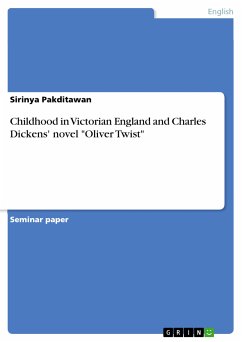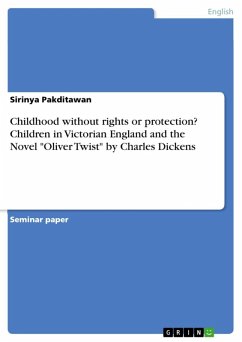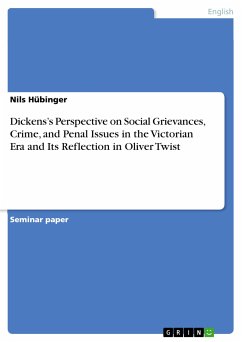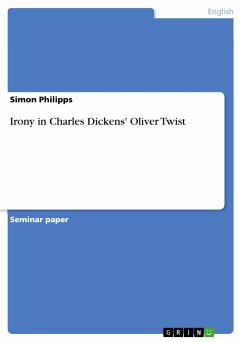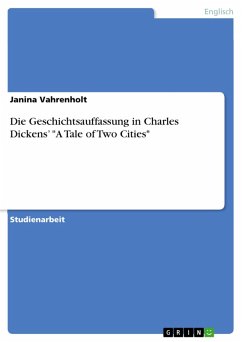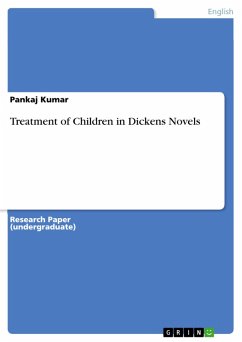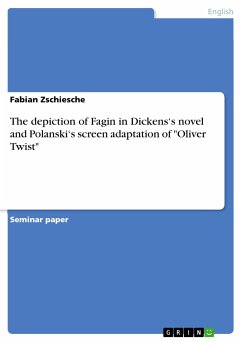Seminar paper from the year 2002 in the subject English Language and Literature Studies - Literature, grade: 1,5, University of Hamburg (Institut für Anglistik und Amerikanistik), language: English, abstract: In "Oliver Twist", Dickens presents the everyday existence of the lowest members of English society and realistically portrays the horrible conditions of the nineteenth century workhouses. Hence, in the story of Oliver Twist, Dickens uses past experiences from his childhood and targets the Poor Law of 1834 which renewed the importance of the workhouse as a means of relief for the poor. In fact, Dickens' age was a period of industrial development marked by the rise of the middle class. In the elections brought about by the accession of William IV in 1830, the Tories lost control of the government. Assumption of power by the Whigs opened the way to an era of accelerated progress. In this time period, children worked just as much, if not more, than some of the adults. After 1833, an increased amount of legislation was enacted to control the hours of labour and working conditions for children and women in manufacturing plants. The Poor Law of 1834 wanted to make the workhouse more of a deterrent to idleness as it was believed that people were poor because they were lazy and needed to be punished. So people in workhouses were deliberately treated harshly and the workhouses were similar to prisons. In the following, it will be analyzed how Dickens attacks the defects of existing institutions in his novel "Oliver Twist". Hence, it will be shown how Dickens creates a fictive world that was a mirror in which the truths of the real world were reflected. However, firstly, it is necessary to take a closer look at the historical background. Thus, the attitude of Victorian society towards the poor comes into view and with it the central issues of child labour, Poor Laws and workhouse conditions. Secondly, when regarding the central theme of child labour in "Oliver Twist", one must also be aware of Dickens' childhood and social background, "Oliver Twist" being partly an autobiographic novel.
Dieser Download kann aus rechtlichen Gründen nur mit Rechnungsadresse in A, B, BG, CY, CZ, D, DK, EW, E, FIN, F, GR, HR, H, IRL, I, LT, L, LR, M, NL, PL, P, R, S, SLO, SK ausgeliefert werden.

